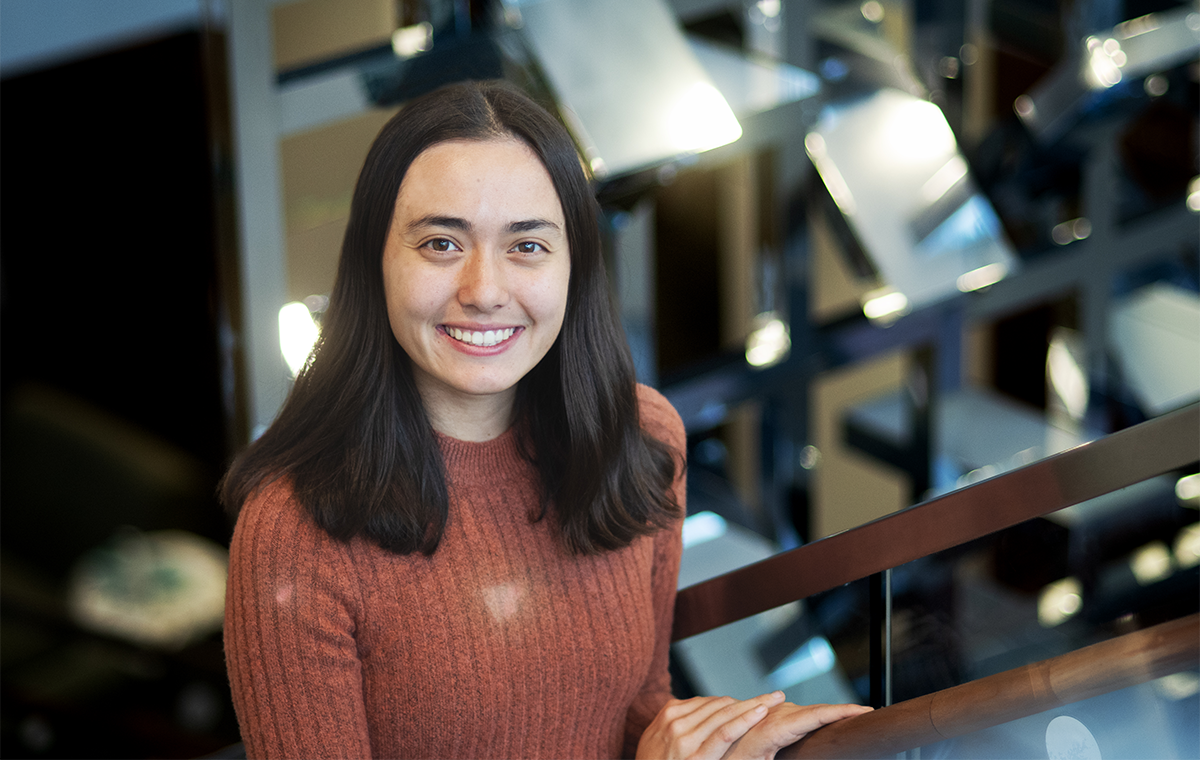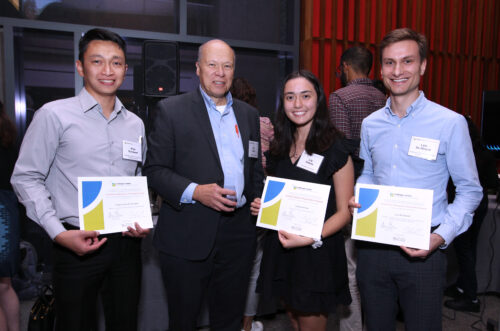
Lilianna Gittoes: Optimizing energy systems
It wasn’t until Lilianna Gittoes’ first semester at Princeton, in a freshman seminar called “Saving Seeds,” that Gittoes said her interest was originally piqued by sustainability.
“I’ve always had a general interest in environmental issues, but I had never done anything with that interest before Princeton,” said Gittoes, who is now a senior concentrating in operations research and financial engineering (ORFE). “But that class was incredibly impactful. It inspired me to imagine how the world can and should operate more sustainably.”
And from her first exploration of sustainability in “Saving Seeds” (taught by Tessa Desmond) to now, Gittoes has devoted much of her time at Princeton to solving energy and environmental challenges.
Following her first year at Princeton, Gittoes participated in a summer internship through the High Meadows Environmental Institute, working with mentors Gina Talt, food systems project specialist at the Office of Sustainability, and Daniel Rubenstein, Class of 1877 Professor of Zoology emeritus. For her project, she visited local organic farms to collect and analyze data on farming practices and crop growth and worked directly with farmers to distribute a questionnaire about their experiences.
The internship, Gittoes said, was a natural extension of the seminar that had sparked her interest in sustainability. And as she took more classes in ORFE beginning in the fall semester of her sophomore year, she grew even more interested in finding ways to tie her in-class learning to real-world projects.
The following summer, supported by the Andlinger Center, Gittoes worked with Eric Larson, senior research engineer at the Andlinger Center for Energy and the Environment, and the Energy Systems Analysis Group to plan carbon transportation infrastructure in southeastern Louisiana. Working with specialized software programs, she sought to find an optimal configuration for infrastructure development in the region, which could serve as a tool to guide investments from the public and private sectors.
“The semester right before working with Eric, I had taken a course in ORFE called ‘Optimization,’” Gittoes said. “In the class, I was introduced to linear programming and learned about methods for finding optimal solutions to problems. During my internship, I was actually applying what I’d learned in class to work with complex real-world systems.”

Gittoes’ project did not end with the summer. Instead, she extended her work through the fall semester of her junior year in an independent research project to identify optimal designs for carbon capture and storage hubs, or clusters of nearby industrial facilities that share carbon infrastructure, in Louisiana. Using information about existing carbon emitters, Gittoes worked to find the most cost-effective and efficient way to connect many separate emitters into a shared carbon capture, transport, and storage network.
“Collaborating on research with Lily has been a pleasure,” Larson said. “She’s a hard worker with outstanding research smarts — thoughtful, analytical, and creative. She also has a talent for clearly communicating complex ideas to non-specialists, a key skill for solving real-world energy problems.”
Gittoes returned to the Energy Systems Analysis Group after her junior year for another summer internship, again supported by the Andlinger Center for Energy and the Environment. This time, her project investigated the potential for forest-based bioenergy in the southern U.S. to contribute to net-zero emissions targets in the country.
While bioenergy with accompanying carbon capture and storage (BECCS) is often touted as a negative emissions technology in which carbon emissions are actually removed from the atmosphere, Gittoes said she was surprised to find that wasn’t always the case.
“My analysis showed forest-based BECCS was only favorable with a specific set of environmental factors in place,” Gittoes said. “When we considered future land use changes, factored in upstream emissions, and even accounted for the regional composition of trees growing in forest areas, we ended up with huge differences in the lifecycle carbon footprints of BECCS facilities.”
In addition to the knowledge she gained from each of her projects, Gittoes said the experiences taught her about how collaborative the process of research can be. While working with the Energy Systems Analysis Group, for instance, she checked in with her mentors multiple times each day for input and advice on her project. She also played an active role in the group’s meetings, presenting her findings and asking for feedback on her ideas. She even sat in on calls with collaborators at other institutions, showing her that her work could have an impact far beyond Princeton.
“It was nice to know that the work I did went beyond our office in the Andlinger Center building,” Gittoes said. “I wasn’t just being handed a project to work on for a summer. I was encouraged to be creative in my problem-solving, and I had the space I needed to think critically about the problems I was working on.”
Having just submitted her applications for graduate school programs in operations research across the country, Gittoes looks forward to continuing her academic career in operations research. She especially hopes to continue applying her knowledge and skills to optimize clean energy solutions.
“In my applications, I wrote a lot about wanting to apply my operations research skills to energy problems,” Gittoes said. “And I can trace that interest to experiences I’ve had and projects I’ve contributed to while being at Princeton.”
Lilianna Gittoes’ internships with the Andlinger Center for Energy and the Environment were supported by the Peter B. Lewis Fund for Student Innovation in Energy and the Environment, as well as Learning and Education in Service (LENS) funds. Gittoes’ High Meadows Environmental Institute internship was supported by the R. Gordon Douglas, Jr. `55 P86 and Sheila Mahoney S55 Fund.